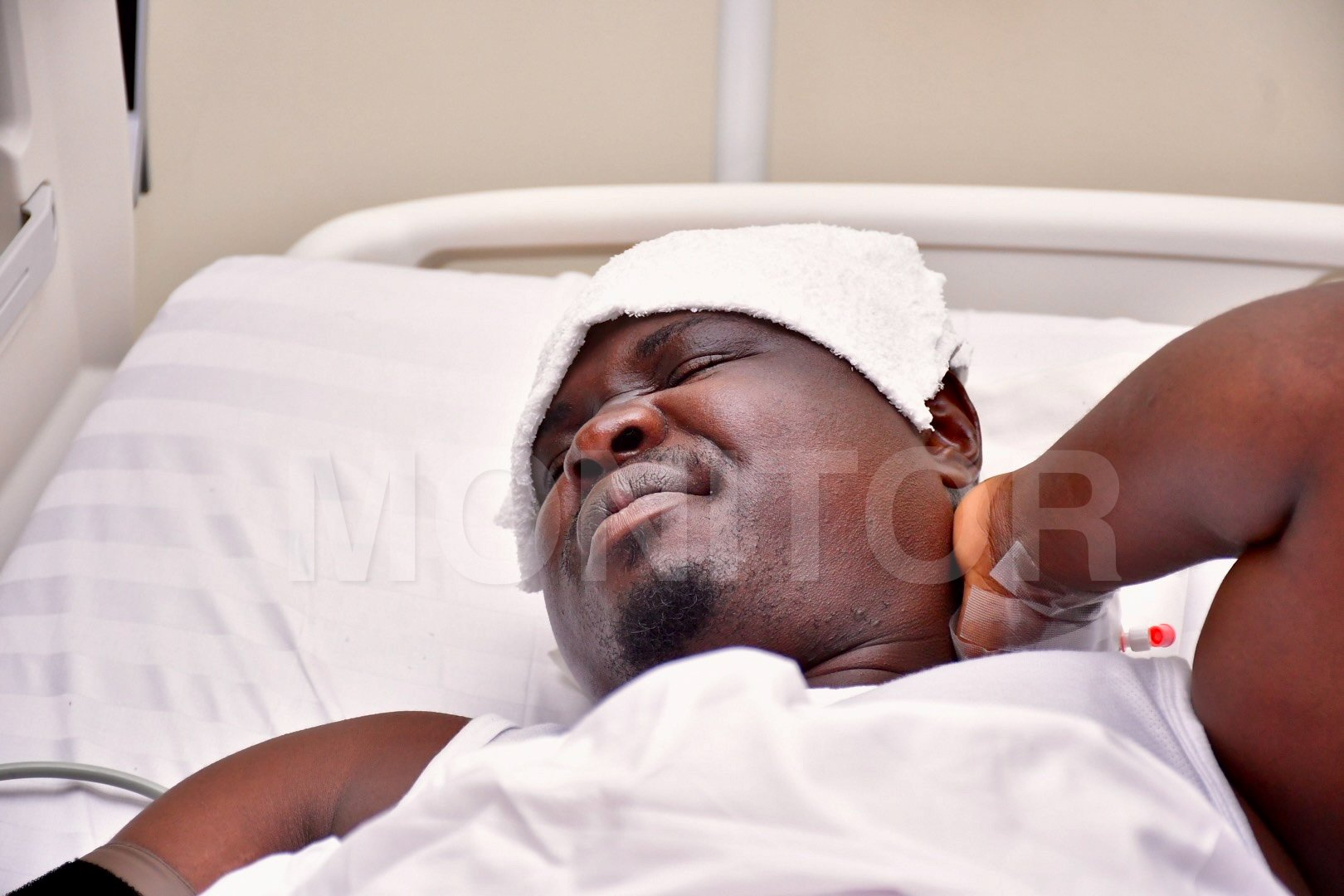Prime
NRM audits support in Buganda, Busoga

What you need to know:
- The ruling party has sent out teams to find out why President Museveni and its candidates performed poorly in the recently concluded election and how they can attract more support for the future.
The ruling National Resistance Movement (NRM) party has already embarked on assessment and mobilisation for political battles even before the dust settles on the January 14 election, Saturday Monitor has learnt.
Different sources from within the NRM say President Museveni and the NRM secretariat have turned their focus on why support for the President drastically declined, especially Buganda and Busoga areas in the recent election and how to plug the holes.
President Museveni was declared the winner of the 2021 presidential elections with 6,042,898 votes, representing 58 per cent of the valid total votes cast, which is the lowest percentage win he has posted since 1996 when he first stood for re-election.
The lowest percentage Mr Museveni had polled in the earlier election was 59 per cent in 1996. At the same time, Mr Museveni had never suffered defeats in Buganda and Busoga areas since 1996. That changed in January.
Sources involved in the exercise say it is to be carried out throughout the country to establish the causes of some of the losses that the party’s flag bearers suffered in regions where they had previously enjoyed support.
“The party is in a very difficult situation. Support has been declining even in areas where we have previously enjoyed a lot of support. That calls for deliberate interventions to arrest the situation, and teams have been sent out to do exactly that,” one source said.
Whereas Mr Museveni had in previous elections lost the vote in the districts of Kampala, Wakiso, and a few other areas of Buganda to Dr Kizza Besigye, he had always emerged overall winner in the region. This changed in the January 14 polls when Mr Robert Kyagulanyi, alias Bobi Wine, the candidate of the National Unity Platform (NUP), beat him in the region with a margin of 614,677 votes. Mr Kyagulanyi polled 1,453,535 votes against Mr Museveni’s 838,858 votes.
The NRM also lost most of the parliamentary seats in Buganda to NUP, with the biggest casualties being Vice President Edward Kiwanuka Ssekandi, and a host of ministers, including the Minister for Information Communication Technology (ICT) and National Guidance, Ms Judith Nabakooba, Vincent Bamulanzeki Ssempijja (Agriculture), John Chrysostom Muyingo (State, Higher Education), and Ms Ruth Nankabirwa, the Government Chief Whip. Lands Minister Beti Olive Kamya was another of the losers in the parliamentary election.
Mr Museveni was also beaten in the Busoga region, where he got 404,862 votes against Mr Kyagulanyi’s 437,059 Votes.
Mr Museveni won in only three out of Busoga’s 11 districts – Buyende, Kaliro, and Namutumba.
He strangely lost in Kamuli District, which re-elected Speaker Rebecca Kadaga with a landslide. The President also lost in Luuka, Iganga, Jinja, Bugweri, Bugiri, Namayingo, and Mayuge districts.
Whereas most of the prominent NRM flag bearers for parliamentary and local government elections comfortably won in different areas of Busoga, the NRM notably lost the Jinja North-West Division seat to the Forum for Democratic Change (FDC) party.
Mr Moses Grace Balyeku, who was the party’s flag bearer, was defeated by FDC’s Dr Timothy Batuwa.
NRM flag bearers in races for Butembe County and Jinja City Woman seats were also defeated.
The Jinja City Woman seat went to NUP.
“Buganda and Busoga are very critical given the big populations they have. It, therefore, becomes important that the party establishes why it performed badly in the two regions. We already have an idea, but it was necessary to subject the process to a scientific evaluation,” a source revealed.
Saturday Monitor has established that the exercise, which is to be driven by NRM vice chairpersons in all the regions, is to be coordinated by the party’s secretary-general, Ms Justine Kasule Lumumba.
We were unable to reach Ms Lumumba over the matter, but the deputy secretary-general, Mr Richard Todwong, confirmed the development.
“This is a normal exercise which is aimed at establishing why things went the way they did. Was it due to internal weaknesses or external factors? We need to have answers so that we prepare early. I should, however, say that any serious party does that kind of thing after every election,” Mr Todwong said.
Mr Todwong declined to discuss how the party is going about the assessment, but a source within the Secretariat told Saturday Monitor that the party has opted to recruit and train researchers, who will go out in the regions and administer questionnaires.
The information available to Saturday Monitor is that the assessment has already been completed in Buganda region and parts of Busoga region.
The exercise in the Buganda region was headed by the vice-chairperson in charge of the region, Mr Godfrey Kiwanda, who is also the Minister of State for Tourism.
Mr Kiwanda confirmed that the exercise in the Buganda region had been completed, saying that eight different meetings had been held.
“We hired a professional research firm to do the work. It entailed interactions with party members, flag bearers, and other stakeholders. The researchers will then compile a report, which we are going to submit to the Central Executive Committee (CEC) of the party for debate before we can share it with others,” Mr Kiwanda said.
Mr Kiwanda said the approach to the research entailed asking respondents how different issues affected the outcome of the election in Buganda.
“We asked people to weigh in on how issues like sectarianism, the brutality of the police and other forces, standards of living, evictions and others like forcing of the fishing communities out of the waters had impacted on the election,” Mr Kiwanda explained.
Busoga Sub-region
Whereas Busoga is part of the eastern region in NRM’s categorisation, we have learnt that a special team led by former Energy minister Daudi Migereko has been assigned to separately work on the sub-region. Mr Migereko was MP for Butembe County for more than two decades.
A source on the team scheduled to work on Busoga told Saturday Monitor that the research there will mostly focus on service delivery.
It has, for example, emerged that in districts like Kaliro and Namutumba, two of the three districts in which Mr Museveni and the NRM flag bearers won, locals seemed to be satisfied with service delivery levels.
We were unable to talk to Mr Migereko for this article, but he, in a previous conversation about the outcome of the election in Busoga, seemed to be privy to information that is not yet in the public domain.
“My conclusion is that these problems (causes of NRM’s poor performance) are now well known and that solutions are being put in place to address them, but the key will be the quick implementation of government programmes, hard work and publicity around the things that are being done,” Mr Migereko said.
FDC gains
Sources revealed that the focus on the rest of eastern Uganda will be on why Forum for Democratic Change (FDC) made considerable gains in Teso and Bugisu sub-regions.
The number of FDC MPs in the region had dropped to three in 2016, but by the time the election was called, the three, Ms Angeline Osege, Mr Elijah Okupa, and Mr Herbert Ariko, had fallen out with the party.
The party, however, made gains by taking two of the seats in Soroti City, with the third going to an FDC-leaning Independent.
Mr Moses Attan Okia took Soroti City East, Mr Julius Tom Ekudo won in Gweri County, Mr Jonathan Ebwalu, an FDC-leaning Independent, took Soroti City West, Ms Joan Alobo Acom took the Soroti City Woman seat and Ms Anne Adeke Ebaju took the Soroti Woman MP seat.
FDC also took Dakabela County, where Mr Jonathan Etau emerged the winner. It also took the Ngora Womens’ seat with Ms Stella Isodo Apolot as the winner and the Ochero County seat where Mr Julius Eragu was declared the winner.
Besides retaining the Budadiri West seat, which was taken by the party’s secretary-general, Mr Nathan Nandala Mafabi (pictured), FDC’s Isaiah Sasaga, Chris Matembu, and Geoffrey Ekanya won in Budadiri East, Bubulo East, and Tororo North. The results in Teso, Budadiri, and Tororo are considered serious reversals for the NRM.



